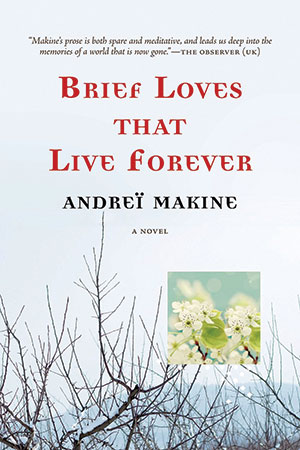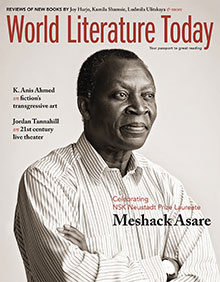Fiction: A Transgressive Art

A Bangladeshi writer traces his quest to dodge the external and internal censors and considers what fiction at its best can do: “sail past all censors to uncover the tender and transgressive core of what it is to be human.”
Limits of the unknown self
The feeling that “life is elsewhere” is not unique to future writers; it is what turns so many of us into travelers, itinerants, or expats–and so many others into readers, books serving as an access to heightened realities. But the problem for the young artist growing up in late 1970s and ’80s Dhaka was of another kind: looking back, I now realize, to a large extent my readings were an exercise in seeking not just models of engagement but the right to engage at all on an elevated plane.
Ideally, a writer should be such a free soul that he doesn’t need to seek permission to engage. I, however, was a naturally dutiful and well-raised South Asian child. As such, I excelled at following rules, some perhaps even of my own imagining. Whether true or the product of my own personal neuroses, nonetheless I felt hampered by the lack of any Bangladeshi books that spoke to my reality. Most Bangla novels regaled us with either the cruel struggle of poor farmers or the heroic tales of socialistic revolutionaries. The more bourgeois narratives focused on the debauchery of zamindars (colonial land barons). But my life afforded no real scope of either the nobility of perishing in floods, or war, nor the refined agony of losing a great inheritance in an alcoholic haze. Dhaka in those days had recovered from the ravages of the 1971 war and was yet to be brutalized by breakneck growth. It was a sleepy city, low-lying with ponds, with soft-serve ice cream shops run out of small garages; and hardly any book reflected that life, caught in the gentle snares of that slowly unfurling city.
There was no single event or book that set me free from my constrictions. License also didn’t come in the form of a single postcolonial voice—an Achebe or a Rushdie—who echoed my subjectivity. What had I to do with African tribal machismo or the nostalgia for a Bombay far more ample than my town, my life? Rather, it came in undetected bits from Camus and Kafka, who spoke of alienation and anxieties so deep, so universal, that they made sense even to my teenage self. It came in the guise of Greene and Naipaul, who showed me that half-baked places like mine, too, were worthy of thoroughly modern treatment, free from colonial nostalgia or provincial prudery. It came as well from Bibhutibhushan Bandyopadhyay, whose bildungsroman protagonist, Apu—made world-famous through Satyajit Ray’s unforgettable trilogy—came across not only as a portrait of the artist as a young man but also the young man as an aspiring cosmopolitan.
What else I have learned by now is that the quest to reach one’s real material is an unending one. Often that subjective core of one’s being, and thus deepest material, is so tender or so terrifying for the author that we circle around it for a lifetime without really getting to it. I live in a culture where external censorship by both the state and extremists is a real problem. Yet it is overcoming one’s internal censors that has been the deeper struggle for me as a writer. So, in my readings I am always specially keyed to decoys and deflections that help one slip past the cordon of internal guards.
In this respect, I continue to draw inspiration from more contemporary voices. Early McEwans and late Coetzees would be an example of such writing. A more decisive one is the strange, obsessive rants of the great Austrian misanthrope Thomas Bernhard; he showed me how to set myself free in areas where I didn’t even know I was constrained. And as a reader, that effect for me remains one of the most enthralling ones in any book. It comes at times from very far-flung places, and the unexpectedness only makes the jolt of recognition stronger.
Two books from this decade that have most charmed and inspired me in that respect are Helen DeWitt’s ersatz satire Lightning Rods and Andreï Makine’s ephemeral elegy Brief Loves That Live Forever. One is a send-up of modern American corporate-consumer culture, the other an intimate portrait of lost times, and lost lives, in Soviet Russia. The two works could not be farther apart in location or style. Yet they are bound by deeper affinities of content and artifice; both seek to salvage the individual from the crush of dehumanizing systems, and both succeed by upending the known rules of fiction. As a reader, to witness such marvelously executed rebellion is reward enough. As a writer, it comes as vital assistance.
 Everything is reasonable
Everything is reasonable
Helen DeWitt’s Lightning Rods (New Directions, 2011) begins innocuously enough as the story of Joe, a salesman who is at first sight as regular as a Regular Joe can be. He is an unsuccessful and lately uninspired seller of Electrolux vacuum cleaners. He spends his days in his trailer indulging his onanistic fantasies of women. Joe, however, is not only a salesman but also an inventor and entrepreneur. And what propels the story is both his gumption to solve a social problem with an innovation that has every potential to become a moneymaker, too. Joe is in this sense the very embodiment of the American Dream, an icon of maverick chutzpah.
DeWitt’s novel is not only daring but basically an exercise in extending a dare to its limits. Joe’s great innovation, termed Lightning Rods, is predicated on a seemingly simple and incontrovertible assumption: sexual harassment happens because men “did not have a legitimate outlet for urges they could not control.” If only men could find a way to release their irrepressible sexual energy, then women could be rendered safe in the workplace! What makes the unfolding of such a preposterous logic oddly transfixing is Joe’s matter-of-fact tone. His worldview is based on platitudes of the following kind:
It’s important to remember that there’s more to life than being a success. Sure, if you do something it’s important to give it your best shot. But it’s also important to be a good person.
Such ordinariness stands in great contrast to the radical nature of his invention. His big idea is to equip the workplace with a contraption that would use the wall connecting men’s and women’s bathrooms. A sliding apparatus placed in a hole in that wall would deliver the lower part of a woman’s body for service into the men’s stall when a client makes the call at an appointed hour. The men get the release they allegedly need, while the women are compensated heavily for their troubles.
What makes DeWitt’s novel work, with discomforting brilliance, is the very fact that its outrageous premise is quite literally played out to its absurd ends.
How the plot plays out, or how things turn out for the characters in this absurd novel, are frankly beside the point. What makes it work, with discomforting brilliance, is the very fact that its outrageous premise is quite literally played out to its absurd ends. The fact that Joe does finally get a taste of success, or that one of his best actors, Renee, goes on to become a star lawyer, is secondary to what makes them who they are; and it’s the kind of language that they employ to drive themselves and to convince others. Narrated in free-indirect style, the characters repeatedly turn to the following formulations: “One way of looking at it,” “the way he saw it was,” “the way she looked at it was,” “the way I look at it,” and so on. The characters value nothing more than matter-of-factness, reasonableness, and—the ultimate goal of any salesman—persuasiveness.
In the hands of a DeWitt, the commonplace-laden language of a Joe gains surprising capacity. It starts with his peculiar preoccupations, moves to the logistical quandaries of his proposition, deals with issues of the workplace and sexual politics, but ends up as a broad social and political commentary on life in the postindustrial era. The law, for example, can get in the way of new ideas, he learns. It was composed by men and women who, “like all of us,” were doing “the best they can do.” But they could not possibly anticipate every contingency the future would throw at them. At the same time, he exhorts us to think about “where the country would be if everyone had waited for a green light from the law in its current form.” No, what the Promethean bearers of progress must do is take the plunge and then press on. The law doesn’t mind if a thing stays small enough. If it becomes so big that some of “America’s largest corporations have made it a part of their enterprise, you may well be able to bring about any little adjustments to legislation that may be necessary to square the law with what people turn out to need.”
And therein—in that one word, “need”—lies the deepest attack of this seething satire: the utilitarian logic that underpins a culture which defines success primarily by the scale of one’s acquisitions, and happiness by the quantities of one’s consumption. An overriding utilitarian culture turns our daily parlance into an alibi. It takes an invention as outrageous as DeWitt’s to expose the complicit nature of the quotidian expressions that envelop us. On a daily basis, that language may be deployed to less nefarious ends; but the real offense is not in any particular act or service. It is in forms of reasoning that have been allowed to become normal and usages that have enabled the logic of measurable gains to trump intuitive truths at every turn.
 A sentimental reeducation
A sentimental reeducation
In places with a freedom deficit, the taboo is often political, and the writing is what in shorthand we still call “dissident.” In freer societies, the focus is often on matters of morals or social mores, especially in the areas of sexual practice. Flaubert, Tolstoy, and Hawthorne dealt, in diverse approaches, with the adulteress. So did Joyce and Lawrence, but with a notable turn away from the moralistic frame. Nabokov presented the pervert with undisguised delight; Miller the profligate with defiant heroism. But in the age of Internet porn, there is nothing left to shock or surprise us. Recent surveys indicate that even in otherwise conservative countries, and perhaps partly due to that very reason, taboo prospects like incest dominate Internet porn searches. What can fiction do in the age of free admissions of interest in porn about midgets and MILFs?
What drives Makine’s little novel is not so much any facts drawn from life but a near-religious preoccupation with beauty in the face of a brutal and indifferent system and the power of even the most fleeting instances of beauty to redeem permanent scars wrought by such a system.
Clearly, there is nothing left for fiction to gain by playing at shock. Indeed, what might be a more daring place to which to return now is sentiment. And Andreï Makine’s slim, gem of a novel, Brief Loves That Live Forever (Graywolf, 2015), provides a marvelous example of how that can be done in a stylish and touching manner. In eight linked episodes, this lean novel tells the story of a man raised as an orphan in the Soviet Union. Makine himself was raised an orphan in the Soviet Union, but that connection is incidental here. What drives this little novel is not so much any facts drawn from life but a near-religious preoccupation with beauty in the face of a brutal and indifferent system and the power of even the most fleeting instances of beauty to redeem the deepest scars wrought by such a system.
The narrator was reared in a post-Stalinist time when dreams of “a shining city” at the end of each new “five-year plan” were briefly restored to the realms of the possible. This is a detail that will strike a chord with many readers in the Third World (as it did with me) who were likewise nourished on such empty promises and may still suffer the indignity of such asinine projections. Yet all hopes are once again betrayed by reality, not just of the continuing Soviet system but, after its end, by a pulverizing new era of commerce.
At first sight, Makine’s novel of sentiment may seem about as far as one can get from DeWitt’s savage satire. But I have found them compelling and similar at two levels; they are both preoccupied with the individual in the throes of a system too vast and brutish to care about them. And they both come at this old Kakfaesque quandary with formal tacks that sidestep the conventional rules of fiction.
Makine’s novel has hardly a story to tell. It opens with the narrator’s chance encounter with an old acquaintance, Ress, who is a dissident decimated by years of jailing. Ress is an idealist who was led into mocking the Nomenklatura by a young love. Once the grave consequences of such insolence became clear, though, the girl quickly retreated to the straight path. Ress, the “poet,” however, could not renounce his activism any more than he could forget his first love.
The narrator’s first love, Vika, also proves to be unforgettable in her simplicity. When he meets her, the narrator is still a ward of the state. Vika lives in a small two-room house with her mother, and the relation they strike up consists of events as simple as summer walks. What Vika accomplishes, however, is to initiate the orphan to any kind of affection for the first time. Instead of the giddiness of love that he has heard of, he finds that they are “slowed, hypnotized by the power of what was happening” to them.
What else remains with him is an ability on the part of Vika to find happiness in her immediate surroundings, free from abstract ideas or promises. The young narrator, of course, is the victim of a faith in a larger “doctrine.” Vika is not one to challenge it intellectually; what she says, however, is just as powerful in its incontrovertible intuitive impact:
A doctrine? What for? We’re happy here, admit it. We’re happy because the air smells of snow and spring. Because the sun’s been warming the planks, because . . . Yes, because, we’re together. Do the others need a doctrine to come down here to look at the fields beyond the Volga? And watch that bird flying from one branch to another in the willows?
The narrator is similarly challenged years later by another young woman who “belonged to this tardy generation of rebels” and would soon be overtaken by history. She wants to show him the stupidity of the Soviet system in the form of an orchard too big to be fertile. He is now a wounded veteran of the Afghan War, and a young dissident—an eternal breed—shows him how the trees in an apple orchard have been planted too close together and are sure to fail. They chance upon a fountain that seems abandoned and unfinished, and the young woman laments that the Soviet era “won’t even leave beautiful ruins behind.”
Makine’s lament is about the sterility of big ideas, big systems. In this respect, his work is not dissimilar to DeWitt’s. They are both perplexed by vast systems that reduce human beings to their own logic. DeWitt’s Joe is the archetypal Everyman, who does not protest, who does not even possess an acute enough consciousness to feel any diminishment in being co-opted, but who nonetheless ends up exposing the colossal indecency of the system within which he desperately strives to succeed.
Makine’s protagonist is neither a satirical stick figure nor a larger-than-life hero. He, much like an old war buddy that he meets years later in a bar, is merely history’s refuse, happy to have survived. The old friend is now a “servant,” in his own words, in the retinue of Ress’s first love, who is herself the wife of a rich and powerful man. We learn from this chance source that Ress kept going every year to the Oktoberfest, the very event where his troubles began, just to catch a glimpse of the woman who had led him into rebellion—and his troubles—in the first instance.
Makine’s vision is an unremittingly romantic one; he insists unabashedly on the importance and power of sentiments without falling into sentimentality. As if a heretical stress on the value of sentiment were not risky enough, the narrative model he deploys here is the lately modish linked stories. What undergirds that apparently lighter form, though, is another durable form—namely, the essay. Makine is not at all shy about breaking one of the most misunderstood “rules” of fiction: show-don’t-tell. He tells, and tells a lot (as indeed does Joe, in his own way, in DeWitt’s novel). Weaving a handful of just-right vignettes and details with ruminations of perfect acuity gives the whole work the impact of a great novel and the sublimity of a Sebaldian memoir.
By the time we arrive at one of the narrator’s final recollections, the memory feels fully earned, entirely weighty:
The country of our youth has sunk without a trace, carrying away with it, as it foundered, the substance of so many lives of which no vestige remains. That girl locating the tune we loved on a long-playing record, her mother thrusting a canvas bag into a prisoner’s hands, myself hobbling about in the mud of my broken leg. . . . All that remains now is the March light, the heady exhalation from the snows beneath the sun’s dazzling rays. . . . What remains is the pale patch of a dress, on the front steps of a little wooden house.
Feints and dodges
What unites these two otherwise dissimilar works is their shared opposition to large systems that almost by definition try to strip the individual of all human traces, traces that will not have any value when measured as part of a larger statistic. How the human saves him- or herself is by getting up to mischief, even if in real life they rarely go as far as Joe. Or in a more somber or poetic vein, they find sufficiency in moments that no official system would care to record. By now, though, a regime of utilitarian logic has spread to all classes of people from priests to parents, teachers to social worker, not just those embroiled in statecraft or business. Indeed, one can hear echoes of such an ethic even in writing classes in the conviction with which some teachers rattle off such bromides as “show-don’t-tell” or “earn the climax.”
How the human saves him- or herself is by getting up to mischief, even if in real life they rarely go as far as Joe. Or in a more somber or poetic vein, they find sufficiency in moments that no official system would care to record.
A mere statement of sentiment is no longer legitimate; it must come with proof, with bona fides. One does not wish to be swept under a wave of tawdry or shallow sentimentality—for that we now have social media. But an insidious co-optation of even literary thinking by the wider culture’s insistence on utility and value can’t be denied. And that, too, can constitute a form of censorship, which takes on the most insidious form when the proscriptions become internalized.
As someone who lives in a place where traditional forms of external censorship are still routine practice, I am endlessly fascinated by all forms of censorship, including the cultural and psychological ones, so subtle that they exist as if only in a state of false consciousness. It can lead to conformist thinking, widely evident even in works of fiction that are published with great fanfare. Against that swell of commercially anointed literary masterpieces, it’s refreshing to come across works as daring in their conceit, as clever in their execution, as DeWitt’s Lightning Rods and Makine’s Brief Loves That Live Forever. Novels like these exemplify what fiction at its best can do: sail past all censors to uncover the tender and transgressive core of what it is to be human.
Dhaka











